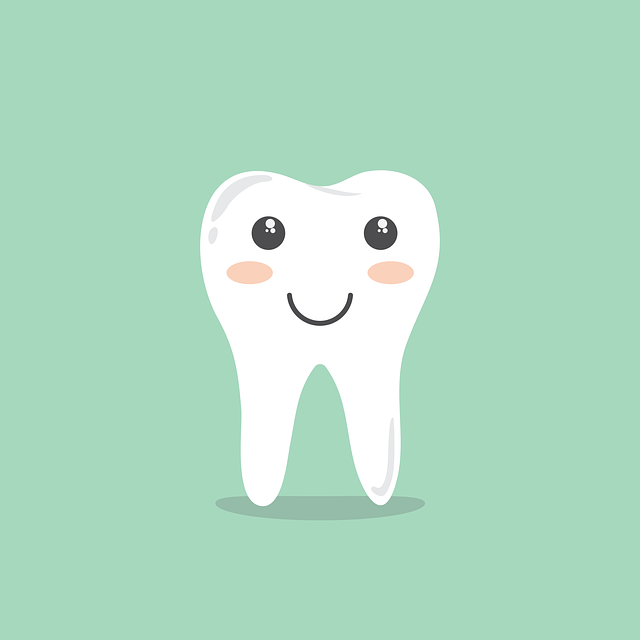Discover the truth behind the longevity of veneers - the dental wonders that can transform your smile. Unveiling the secrets of their endurance.
1. Understanding Dental Veneers: An Overview of This Cosmetic Solution
Dental veneers are a popular cosmetic solution that can transform your smile and boost your confidence. These thin, custom-made shells are designed to cover the front surface of your teeth, improving their appearance and addressing a range of dental issues. If you have stained, chipped, or misaligned teeth, dental veneers offer a simple and effective way to achieve a beautiful, natural-looking smile.
One of the greatest advantages of dental veneers is their versatility. They can be used to address a variety of cosmetic concerns, including:
- Discolored teeth that don’t respond to traditional whitening methods.
- Chipped or cracked teeth.
- Misaligned or uneven teeth.
- Gaps between teeth.
When you opt for dental veneers, the process typically involves two visits to your dentist. During the first visit, your dentist will prepare your teeth by removing a small amount of enamel to ensure a proper fit for the veneers. Impressions of your teeth will then be taken to create custom-made veneers that match your natural teeth in color and shape. On your second visit, the veneers will be bonded to your teeth using a strong adhesive, resulting in a seamless, natural-looking smile.
2. The Lifespan of Veneers: How Long Do They Really Last?
Veneers are a popular choice for enhancing smiles and transforming teeth. But just how long can you expect your veneers to last? While they are a durable and long-lasting solution, it’s important to understand that their lifespan can vary depending on several factors.
1. Oral hygiene: Good oral hygiene practices, such as regular brushing, flossing, and dental check-ups, play a key role in extending the lifespan of veneers. Keeping your teeth and gums healthy will help ensure that your veneers remain in optimal condition for as long as possible.
2. Material quality: The quality of the materials used for your veneers can significantly impact their lifespan. High-quality porcelain veneers, for example, are known for their durability and resistance to staining. On the other hand, lower-quality materials may not withstand daily wear and tear as well.
3. Bite force: Excessive pressure from grinding or clenching your teeth can potentially damage veneers over time. If you suffer from bruxism, your dentist may recommend wearing a nightguard to protect your veneers and extend their lifespan.
4. Diet and habits: Certain foods and habits can affect the longevity of your veneers. Avoiding hard foods, biting on non-food objects like pens, and refraining from habits like nail-biting can help prevent chips or cracks in your veneers.
By considering these factors and following proper oral care practices, veneers can last on average between 10 and 20 years. However, it’s crucial to keep in mind that individual experiences may vary. Regular dental check-ups will allow your dentist to assess the condition of your veneers and recommend any necessary maintenance or replacements to ensure a long-lasting and beautiful smile.
In the world of woodworking, veneers often get a bad reputation for lacking durability. However, many misconceptions surround this topic, and it’s essential to separate fact from fiction. Let’s debunk some of the most common misconceptions about the factors affecting veneer durability to provide you with a clear understanding of the truth. 1. Thickness: Contrary to popular belief, veneer thickness does not directly relate to its durability. While thicker veneers may offer added stability or resistance to damage from sanding, thin veneers can still be remarkably durable if properly bonded and finished. 2. Species: Some assume that only certain wood species can ensure a long-lasting veneer. In reality, durability depends more on veneer preparation, finish quality, and subsequent maintenance rather than the specific wood species chosen. With proper care, even softer wood species can provide exceptional longevity. Veneers are a popular choice for individuals looking to enhance their smile, but have you ever wondered how long they can last? The longevity of veneers is influenced by the materials used and the techniques employed during the procedure. Firstly, the quality of the materials used in the fabrication of veneers plays a crucial role in determining their longevity. High-grade porcelain veneers are known for their exceptional durability and resistance to staining. These veneers are meticulously crafted to mimic the translucency and natural appearance of tooth enamel, ensuring a seamless integration with your existing teeth. Another option is composite resin veneers, which are more affordable, although they may not possess the same long-lasting qualities as porcelain. Secondly, the techniques employed during the placement of veneers are equally important. It is crucial that a skilled and experienced dentist performs the procedure to maximize longevity. A thorough and precise preparation of the tooth surface is necessary to ensure a strong bond between the veneer and the tooth. The dentist will carefully remove a minimal amount of enamel, creating a roughened surface for optimal adhesion. Additionally, the use of advanced bonding agents and curing techniques helps to enhance the longevity of veneers. Veneers are a wonderful investment for enhancing the appearance of your smile. To ensure their longevity, it is crucial to maintain a proper oral hygiene routine. Here are some essential practices to keep your veneers looking beautiful for years to come: 1. Brushing: Brush your teeth at least twice a day using a soft-bristled toothbrush. Be gentle while brushing to avoid damaging the thin layer of ceramic or porcelain on your veneers. Use a fluoridated toothpaste to protect against decay and keep your teeth and veneers clean and fresh. 2. Flossing: Don’t forget to floss! Veneers may not be susceptible to cavities, but the natural teeth beneath them certainly are. To prevent any oral health issues, floss your teeth once a day. Using a gentle sawing motion, slide the floss carefully between your teeth and along the gum line. This will remove any trapped food particles and plaque, ensuring the health of both your veneers and natural teeth. Veneers, like any dental restoration, may warrant repairs or maintenance at some point. Fortunately, there are options available to restore and maintain the functionality and aesthetics of veneers. Here are a few possibilities to consider: 1. Repairing Damaged Veneers: 2. Replacing Veneers: It’s important to note that regular dental hygiene practices and check-ups can significantly prolong the life of your veneers. With proper care and maintenance, veneers can last for many years, giving you the beautiful smile you’ve always desired. Veneers are a popular cosmetic dental treatment that can greatly enhance the appearance of your smile. However, just like any dental restoration, veneers may need to be replaced after a certain period of time. Here are some signs that indicate it might be time to consider upgrading your smile by replacing your veneers:
4. The Science Behind Veneer Longevity: Materials and Techniques
5. Taking Care of Your Veneers: Essential Oral Hygiene Practices for Longevity
6. Can Veneers Be Repaired? Exploring Maintenance and Restoration Options
- Small chips or cracks in veneers can often be repaired by your dentist, depending on the extent of the damage.
– The damaged area is carefully reshaped and filled with a tooth-colored material, seamlessly blending with the surrounding veneer.
- This process typically takes just one visit, and the repaired veneer should look and feel just like the original.
– In some cases, if a veneer is extensively damaged or doesn’t match the surrounding teeth, it may need replacement.
– Your dentist will carefully remove the old veneer and take an impression of your tooth to create a new one.
- During this time, a temporary veneer may be used to maintain your appearance until the new one is ready.7. Upgrading your Smile: Signs It’s Time to Replace Your Veneers
Additionally, changes in oral health can influence the need for veneer replacement. If you develop gum disease or experience significant tooth decay, it may be necessary to replace your veneers to ensure the health and longevity of your teeth. Visiting a qualified dentist who specializes in cosmetic dentistry can help you determine the right time to replace your veneers and provide you with the best options for upgrading your smile.
8. The Role of Dentists: Professional Monitoring and Recommendations
Dentists play a crucial role when it comes to professional monitoring and recommendations for oral health. Their expertise and knowledge in dental care enable them to provide valuable guidance to patients. Here are some key aspects of their role:
-
- Regular check-ups: Dentists recommend that individuals visit their dental clinic for routine check-ups every six months. These appointments allow dentists to assess the overall oral health, detect any potential issues early on, and provide necessary treatments.
- Monitoring oral hygiene: Dentists advise patients on proper oral hygiene practices, such as brushing techniques, flossing, and using mouthwash. They educate individuals on the importance of using the right dental products to maintain good oral health.
- Dental treatment plans: Dentists develop personalized treatment plans for patients based on their specific dental needs. Whether it is repairing cavities, treating gum disease, or performing cosmetic procedures, dentists outline the required treatments and provide recommendations accordingly.
The role of dentists also involves:
- X-rays and diagnostic tests: Dentists conduct x-rays and other diagnostic tests to identify underlying dental issues that may not be visible to the naked eye. These tests help in creating an accurate diagnosis and determining the most effective treatment options.
- Referrals: If necessary, dentists refer patients to specialists for further evaluation or treatment, such as orthodontists for braces or oral surgeons for complex dental procedures. They ensure that patients receive the specialized care they require for specific oral health concerns.
- Patient education: Dentists take the time to explain dental conditions, procedures, and preventive measures to their patients. They address any concerns or questions patients may have, empowering them to make informed decisions about their oral health.
9. Veneers vs. Other Dental Solutions: Comparing Durability and Effectiveness
When considering dental solutions, it’s important to weigh the durability and effectiveness of different options. In this article, we will compare veneers with other dental solutions, highlighting their pros and cons.
Veneers:
- Highly durable: Veneers are made from strong materials such as porcelain or resin composite, providing long-lasting results.
- Natural appearance: Veneers are designed to match the color and shape of your natural teeth, creating a seamless smile.
- Stain-resistant: Veneers are resistant to stains, making them a great option for individuals with discoloration or yellowing teeth.
- Minimal tooth alteration: Veneers require minimal removal of enamel, preserving the health of your natural teeth.
Other Dental Solutions:
-
- Dental bonding: Dental bonding is a procedure in which tooth-colored resin is applied to the teeth and then hardened using a special light. While it is less expensive than veneers, it is not as durable and may need to be replaced more frequently.
- Dental crowns: A dental crown is a custom-made cap that covers the entire tooth. While crowns provide excellent durability, they require more tooth alteration and may not be as aesthetically pleasing as veneers.
- Teeth whitening: Teeth whitening is an effective solution for stained teeth, but it does not correct other dental issues such as chipped or misaligned teeth.
Considering the durability, natural appearance, and minimal tooth alteration offered by veneers, they are often the preferred choice for individuals seeking a long-lasting and aesthetically pleasing dental solution.
10. Investing in a Long-Term Solution: Weighing the Costs and Benefits of Veneers
When considering a long-term solution for dental imperfections, veneers are a popular option that can provide significant benefits. However, before making the investment, it’s important to carefully weigh the costs and benefits of this cosmetic procedure.
Here are some key factors to consider:
-
- Cost: Veneers can be an expensive option, with prices varying depending on factors such as material and the number of teeth being treated. It’s essential to research and consult with a dental professional to understand the total cost involved.
- Appearance: Veneers can effectively enhance the appearance of teeth by correcting issues like discoloration, chips, or gaps. They provide a natural-looking smile that can boost self-confidence and improve overall facial aesthetics.
- Durability: Veneers are designed to be long-lasting, with an expected lifespan of 10-15 years. They provide a durable solution that can withstand daily use, including normal chewing and biting.
- Maintenance: Maintaining veneers requires proper oral hygiene practices, including regular brushing, flossing, and routine dental check-ups. While they are stain-resistant, it’s important to avoid habits such as biting hard objects or excessive teeth grinding to maximize their lifespan.
Before deciding to invest in veneers, it’s crucial to consult with a qualified dentist to determine if this is the right solution for your specific dental needs and goals. Understanding the costs and benefits associated with veneers will help you make an informed decision and achieve the beautiful smile you desire.
Conclusion
In conclusion, while veneers can significantly enhance your smile, it’s important to acknowledge their limitations. With proper care, they can last many years but don’t generally last a lifetime. Regular check-ups and maintenance ensure longevity, so consult your dentist for personalized advice. Prioritize oral hygiene and safeguard your investment for a beautiful, enduring smile.





